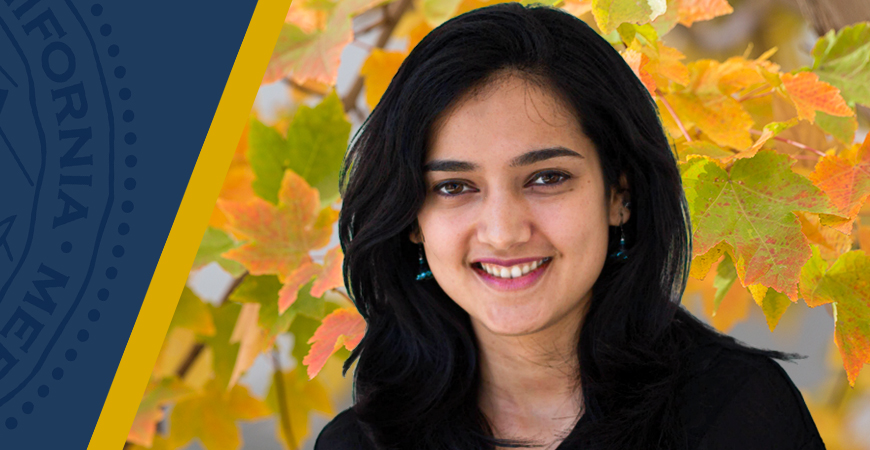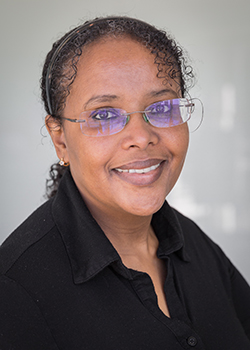
UC Merced’s Graduate Division provides many programs throughout the year to ensure students succeed academically, including faculty and peer mentoring programs, free tutoring, and social and well-being activities to help foster a sense of belonging and community.
Given the unprecedented circumstance of remote instruction, coupled with the campus’s record-high graduate student enrollment this fall, Graduate Division staff have been innovative and creative in their approaches to deliver programming remotely while remaining responsive to students’ needs.
“The pandemic has been especially hard for graduate students and postdocs who may feel isolated and frustrated by the delay in their research and training, in addition to the struggles of working from home that many of us face,” interim Vice Provost and Graduate Dean Chris Kello said. “The whole campus has rallied to keep our research and educational mission going through COVID-19, and graduate students and postdocs have been integral to the cause, both in terms of receiving and providing support through the summer and into the fall.”

The Graduate Division’s Graduate Resource Center (GRC) offers a range of student services, programming and academic resources. While the physical location is closed, tutoring for graduate writing and statistics, as well as online resources for graduate fellowships, have been adapted to remote delivery. Graduate Orientation Week (GROW) consists of many on-campus events and activities for new graduate students held right before the start of the fall and spring semesters. It was a heavy lift for staff to convert all the activities to an online format, so the Graduate Division set aside funds to hire a graduate student to help with the transition. Fifth-year Quantitative and Systems Biology (QSB) Ph.D. student Megha Suswaram jumped at the opportunity.
“They were looking for someone experienced with navigating CatCourses, Flipgrid and other digital platforms,” said Suswaram, who is a veteran teaching assistant and has knowledge of many online learning programs.
Suswaram arrived at UC Merced as a new graduate student in 2014 and found it overwhelming to adapt to a new university in a new city. For her, attending GROW and events proved beneficial in the acclimation process.
“There’s so much information when you join a new school, and it's doubled if you're an international student,” said Suswaram, who is from India. “There are so many things that you have to take care of, so when someone is telling you ‘this needs to be done and in this form,’ it's really helpful.”

In addition to working closely with Graduate Division staff members, Suswaram said she worked directly with staff from the campus’s three schools, the Center for Engaged Teaching and Learning, the Office of International Affairs, Title IX Office, and the CARE and Ombuds offices while building the revamped GROW experience.
“I wanted it to be a digital format where you can download information and keep it on your computer so you can go back and access it,” she said. “The modules were designed in such a way that students could either attend the webinars synchronously or view them later as assignments.”
Suswaram said the format proved helpful for incoming grad students, especially those who are attending UC Merced virtually from different times zones this semester.
“The new format was a coherent, step-by-step process; students did not have to multitask or do things in parallel, so it wouldn’t overwhelm them,” she said.
The Grad EXCEL peer mentor program, another offering to help acclimate new grad students to graduate school, was also modified to operate remotely. This fall, monthly virtual networking sessions provide mentors and mentees with opportunities to engage. The program boasts participation from 14 graduate groups — compared to 12 groups last year — and 39 peer mentors are providing support to 100 new doctoral students — more than in previous years.
“We have learned that many of our activities translate surprisingly well to the online world,” Kello said. “Since we went to remote instruction in March, our office hours have had the best attendance ever, and they have been really effective for sharing information among graduate students, staff and faculty.”
The whole campus has rallied to keep our research and educational mission going through COVID-19, and graduate students and postdocs have been integral to the cause, both in terms of receiving and providing support through the summer and into the fall.

